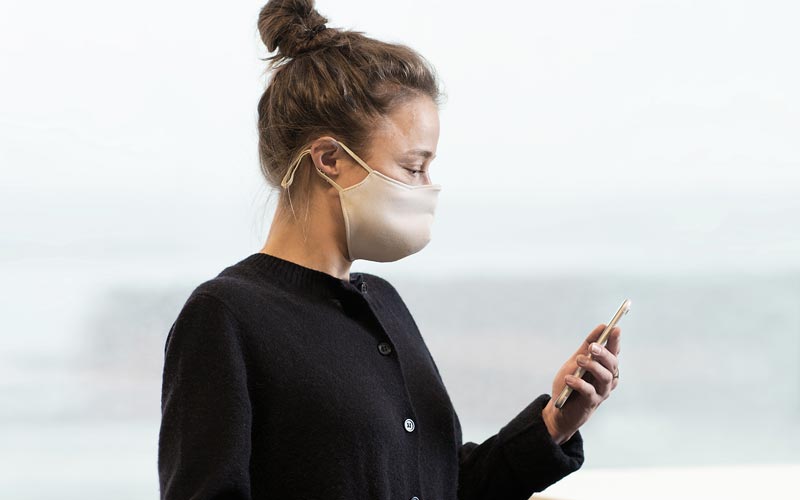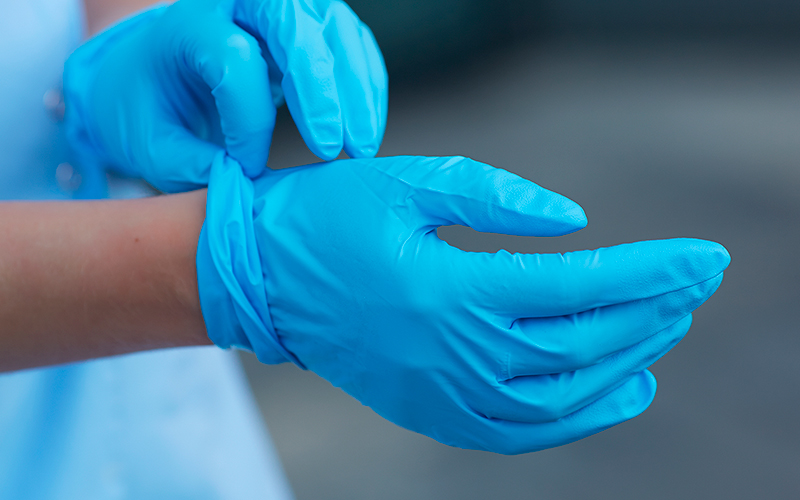
14. January 2021
It is almost impossible for consumers to assess the quality, function, and safety of washable face masks for use in public. Why? Because no general requirements exist in this area. A new Danish standard will change this situation. The standard went out for consultation on 22 December.
The use of face masks in supermarkets, malls, and other public places due to COVID-19 has led consumers, manufacturers, and authorities to demand specific requirements for the quality and safety of washable face masks. Therefore, Danish Standards, in collaboration with Danish authorities, test laboratories, manufacturers and the Danish Consumer Council, has prepared a proposal for a Danish standard setting out requirements for face masks for use in public that can be reused after washing, such as cloth face masks.
“At the Danish Consumer Council, we are very pleased that a standard is underway to help consumers make good choices when they need to buy cloth face masks. Our tests showed that consumers feel like navigating in a jungle, and many cloth face masks are just not good enough. We therefore welcome that consumers will soon be able to get help from the new standard ", says Christel Søgaard Kirkeby, project manager at the Danish Consumer Council.
The new standard also requires that there shall be no unwanted chemical substances in the face mask, so that users avoid being exposed to unwanted fluorides and antibacterial substances. The standard’s overall aim is to ensure that reusable face masks contain no harmful substances.
“The Danish objective was to provide specific requirements for washable face masks for use in public spaces in order for consumers to be able to trust the quality of the face mask and its ability to retain more than 70 or 90 % respectively of the particles that it is exposed to”, says Jens Heiede, standardization director at Dansk Standard.
The degree of filtration will be stated on the packaging together with a declaration that the face mask conforms to the Danish standard, which will be designated DS 3000:2021. This means that producers can use the standard to document that the face mask complies with therequirements in the field, and that Danish consumers will find it easier to choose good and safe face masks for use in public.
Both the Danish Medicines Agency and the Danish Safety Technology Authority have participated in the preparation of the standard for washable face masks for use in public:
“Setting minimum requirements for washable face masks is not normally within the Danish Medicines Agency's area of responsibility, but in this unusual situation we have entered into a constructive collaboration with Danish Standards, the Danish Safety Technology Authority, Danish test laboratories and the Danish Consumer Council with the ambition to assist citizens in navigating a market, which is completely new to most people. It is our hope that this new standard will allow citizens to find good alternatives to disposable medical face masks”, says Katrine Bugge Skou, official at the Danish Medicines Agency.
“As there is an increasing demand for face masks, and as this specific type of face mask is unregulated, there is a clear need for a standard. There is no legal requirement to follow the standard, which is just some help to manufacturers of reusable face masks. However, if the product is marketed as produced according to the standard, it must comply with the requirements”, says Finn Lund Sørensen, official at the Danish Safety Technology Authority. He also points out that even though the product is made according to the standard, it is not personal protective equipment or a medical device that provides protection against viruses or bacteria.
The standard also specifies the testing methods applied to determine whether the face mask meets the requirements. Among other things, the face mask must be tested while worn by users to ensure it fits well and stays in place even while talking and moving.
“To ensure the quality of products on the market, manufacturers need a number of specific requirements they can adjust to. The requirements aim at ensuring good products for consumers but also serve as a guideline to manufacturers, so that all play by the same rules. For consumers, this means that they can be more confident that the products function as intended, and for manufacturers it ensures that the market is not undermined by low quality products. Standardization of the market for face masks benefits everyone, both consumers and manufacturers”, explains Rasmus Forsberg, specialist at Force Technology.
The Danish standard for washable face masks for use in public spaces is up for consultation from 22 December to 22 January and is expected to be published at the beginning of February.
The standard for face masks for use in public spaces provides for several specific requirements regarding quality, efficiency, safety and testing methods. It also includes requirements for instructions for use, e.g., in relation to use and washing. The standard can also be applied to washable face masks for children from five years up.
The standard will both make it easier for consumers to choose a safe cloth face mask and for manufacturers to document the quality because the standard’s number DS 3000:2021 and the filtration degree will appear on the packaging.
The sources of inspiration behind the Danish standard include a European guideline on face masks and other European standards for, e.g., medical bandages and protective masks, as well as experience from manufacturers, test laboratories and other experts in the field.
The standard has been prepared by a standardization committee under Danish Standards, whose members include the Danish Consumer Council, the Danish Medicines Agency, the Danish Environmental Protection Agency, the Danish Safety Technology Authority, the Danish Health and Medicines Authority, the National Serum Institute, Force Technology, the Danish Technological Institute, and the manufacturer Keepsafe.
A number of participants from the same committee as well as several other actors are also participating in the preparation of a European technical specification for cloth face masks, which is yet another step towards an actual European standard. Finalisation of the European technical specification is expected in the first quarter of 2022. Due to the current urgent need, it was decided to prepare a Danish standard to help ensure the quality and safety of face masks for use in public spaces. The good Danish experiences from this work will be taken into consideration at European level. Everyone with insight into this field is welcomed to participate in the work and have a say in the content of the European technical specification
Energy management is a palpable and an appropriate tool for improving the company's energy efficiency and reducing the CO2-emission. But how can a company that may not be used to working with standards approach the work?
Standards advance the green transition, for example by contributing to reducing companies’ climate impact and promoting new green products and solutions.
According to a new study among almost 600 Danish companies, reduced environmental impact, increased use of climate-friendly materials and greater distribution of green solutions are just some of the benefits of applying standards in connection wit...
In order to assist organizations that produce or want to produce essential medical protective equipment in the fight against coronavirus, Danish Standards provides a number of standards free of charge.




